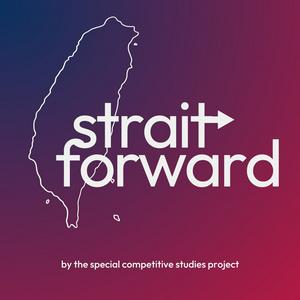On this episode of Strait Forward, host Channing Lee sits down in Taipei with Puma Shen, a member of Taiwan’s Legislative Yuan, associate professor of criminology at National Taipei University, and co-founder of Kuma Academy and Doublethink Lab. Puma breaks down the multitude of threats that Taiwanese civilians face from Beijing, ranging from traditional military coercion to the invisible battleground of cognitive warfare, their impact on domestic Taiwanese politics, and what ordinary citizens are doing to defend themselves. He discusses how the Chinese Communist Party (CCP) uses transnational repressions to intimidate the Taiwanese people, and why he believes it is important to stay strong.
Strait Forward is a podcast by the Special Competitive Studies Project.


